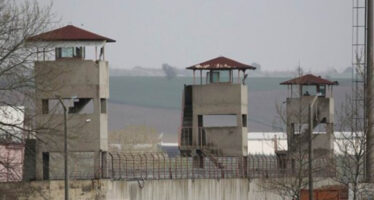Sanciones de EEUU a la Corte Penal Internacional: reacción colectiva de 67 Estados
![]()
El pasado 11 de junio, Estados Unidos anunció oficialmente sanciones contra el personal de la Corte Penal Internacional (CPI) (véase nuestra breve nota al respecto titulada “A propósito de las sanciones anunciadas por Estados Unidos contra el personal de la Corte Penal Internacional (CPI)“).
Este 23 de junio, fueron 67 Estados Partes al Estatuto de Roma (de un total de 123, según el registro oficial de Naciones Unidas), los que difundieron un comunicado conjunto, precedido por el listado de los Estados que lo firman.
El listado antes mencionado permite identificar a Estados Partes al Estatuto de Roma que, por alguna razón, optaron por no apoyar la iniciativa suscribiendo el texto (posiblemente en razón de fuertes presiones diplomáticas ejercidas por Estados Unidos). En el caso de América Latina, no aparecen El Salvador, Guatemala, Honduras, Panamá ni Paraguay. En el caso de los Estados Miembros de la Unión Europea (UE), Hungría y Polonia tampoco consideraron oportuno firmar el comunicado (al igual que Japón en Asia), cuyo texto se lee de la siguiente manera:
Statement in support of the International Criminal Court (ICC) following the release of the US Executive Order of 11 June 2020
endorsed by Andorra, Argentina, Australia, Austria, Bangladesh, Belgium, Belize, Bolivia, Brazil, Bulgaria, Burkina Faso, Canada, Chile, Colombia, Costa Rica, Côte d’Ivoire, Croatia, Cyprus, Czech Republic, Democratic Republic of the Congo, Denmark, Dominican Republic, Ecuador, Estonia, Fiji, Finland, France, Gambia, Germany, Greece, Guyana, Iceland, Ireland, Italy, Latvia, Lesotho, Liechtenstein, Lithuania, Luxembourg, Madagascar, Malta, Mexico, Namibia, Netherlands, New Zealand, Nigeria, Norway, Peru, Portugal, Romania, Saint Vincent and the Grenadines, San Marino, Senegal, Sierra Leone, Slovakia, Slovenia, South Africa, Spain, State of Palestine, Sweden, Switzerland, Trinidad and Tobago, Tunisia, Uganda, United Kingdom, Uruguay and Venezuela.
23 June 2020
As States Parties to the Rome Statute of the International Criminal Court (ICC), we reconfirm our unwavering support for the Court as an independent and impartial judicial institution. In line with the 11 June press release of the President of the Assembly of States Parties, we reiterate our commitment to uphold and defend the principles and values enshrined in the Rome Statute and to preserve its integrity undeterred by any measures or threats against the Court, its officials and those cooperating with it.
We remain committed to an international rules-based order. The ICC is an integral part of this order and a central institution in the fight against impunity and the pursuit of justice, which are essential components of sustainable peace, security and reconciliation. We will therefore continue to respect our cooperation obligations under the Rome Statute and we call on all States to ensure full cooperation with the Court for it to carry out its important mandate of ensuring justice for the victims of the most serious crimes of international concern.
We recall that the ICC is a court of last resort, which anchors a system of justice for serious international crimes rooted in national courts. National authorities have the primary responsibility to investigate and prosecute Rome Statute crimes. The ICC only steps in when States are unwilling or unable to genuinely carry out national proceedings.
The ICC, as the world’s first and only permanent international criminal court, is an essential component of the multilateral architecture upholding the rule-of-law. It embodies our collective commitment to fight impunity for international crimes. By giving our full support to the ICC and promoting its universal reach, we defend the progress we have made together towards an international rules-based order, of which international justice is an indispensable pillar.
Related Articles
On a Day This Week. April 27, 2020 – Antonio Francesco Gramsci
![]()
On a day this week, 27 April 1937, at 4am in the morning, Antonio Francesco Gramsci died, his health broken by years of incarceration in Benito Mussolini’s fascist jails
Conditions worsening in Turkey’s prisons due to COVID-19
![]()
Feleknas Uca and Hişyar Özsoy, co-spokespersons of the HDP Foreign Affairs Commission, have released a statement on the worsening conditions in Turkey’s prisons due to the coronavirus pandemic
ARGENTINA REVIVE EL FANTASMA DEL CRACK FINANCIERO
![]()
El Gobierno derechista de Mauricio Macri ha conseguido en apenas dos años multiplicar por dos la deuda externa del país austral





